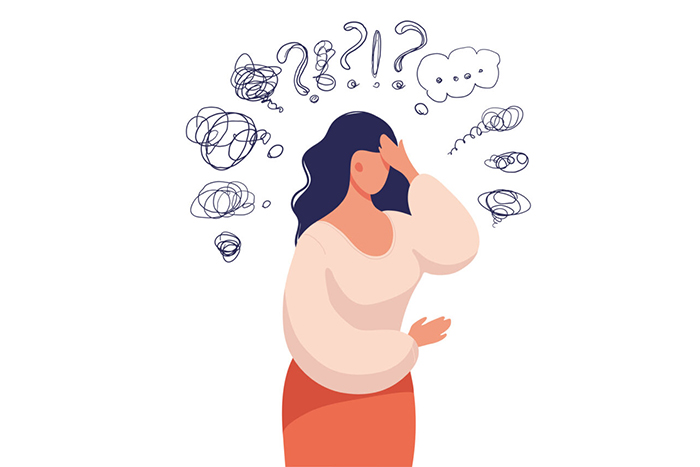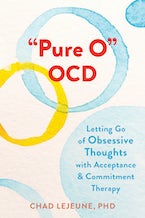By Chad LeJeune, PhD, author of “Pure O” OCD
The world we live in today offers us more choices than ever before. While the milk we drank was once limited to whether we owned a goat or a cow, now we can select from skim, low-fat, whole, lactose-free, soy, almond, cashew, raw, or even hemp milk. While there are many benefits to having a range of options, the opportunity to choose is often accompanied by anxiety. There are several reasons for this.
First, evolution has left us with a hardwired aversion to loss. For every additional option available to us, our anxious brain sees one more opportunity to miss out on something. Second, the fact that humans have very good imaginations means that even when we have something good, we can always imagine something better. The lack of that something can seem like a loss even if we haven’t experienced something better, and even if it’s uncertain that something better exists. Finally, we tend to experience these anxious thoughts as more “real” and compelling than ordinary thoughts. This phenomenon, called cognitive fusion, means that anxious thoughts and the reality the thoughts refer to become “fused” for us. This makes the something better that we imagine seem real, and only slightly beyond our reach.
All of this can lead to FOMO, the Fear of Missing Out. We may feel compelled to make not only a good choice, but the best choice possible, to maximize. This might not be a big deal when it comes to buying milk, but it can be paralyzing when we’re choosing a job, a place to live, or a romantic partner.
Here are some things to keep in mind when considering all your options, whether the choice you are making is a big one or a small one.
1. Every Choice Leads to More Choices
Keep in mind that your ultimate success depends not just on the choice you’re making now, but on your subsequent choices. Whether a career move works out isn’t just about choosing the “right” job, it also depends on how you apply yourself at that job. A successful relationship isn’t just a matter of choosing the “right” partner, it’s also about all the choices you make within that relationship. In other words, your power to influence outcomes and to make a given choice a success continues well beyond that initial moment of choosing.
2. Embracing a Choice Contributes to a Favorable Outcome
The ultimate success of any choice is dependent to some degree on your ability to commit to it, and to follow through. Time spent reevaluating your decision and considering more options means less time devoted to making a success of the choice you’ve already made. Try to focus on what you can do today to make your choice work out well.
3. “Right” and “Wrong” Choices are Only Abstract Concepts in Your Mind
In the real world, choices work or don’t work to varying degrees. There is often a mixture of “rightness” and “wrongness” to most of our choices. This is also likely to be true for all of the options that we do not choose.
4. Narratives about “Better” Choices Are Just That… Narratives
The grass is always greener and the scenery more appealing along the roads we never travel. It’s easy to idealize the meal we never ate, the trip we did not take, or that person we chose not to marry. The very fact that you did not choose something allows your anxious mind to imagine all sorts of things you might be missing. This only means that you have a good imagination.
Choice is a wonderful thing, but it can often feel like a burden. If you notice yourself avoiding making important choices, it helps to remember that not choosing is also a choice, and that it carries costs of its own.
Chad LeJeune, PhD, is a clinical psychologist, and professor of psychology at the University of San Francisco. He is a founding fellow of the Academy of Cognitive and Behavioral Therapies, and author of The Worry Trap.



 2024 Peace Playbook: 3 Tactics to Avoid Clashes with Your Partner
2024 Peace Playbook: 3 Tactics to Avoid Clashes with Your Partner